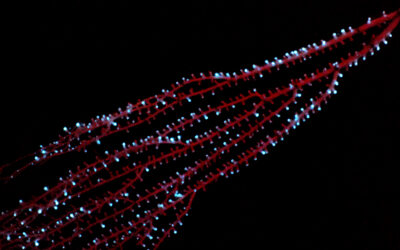Researchers have designed an elegant and intuitive electronic system that allows the readers of paper books to access related multimedia content by simply placing a bookmark on a page. The “Magic Bookmark” uses optical contrast sensors to discern a pattern printed next to the book’s spine on each page. Because no electronics are embedded in the paper book, costs are minimised, and end-of-life recycling is enabled.
Minimizing the ecological footprint of this tech was a prime driver of the research. Georgios Bairaktaris, one of the key researchers on the project, saying “We focus on minimalistic solutions with a view of low-cost manufacturability and robustness during use. It’s important to us that there are responsible disposal options at the end of products’ life cycles as well.”
The research explores several ways of making the system. After a series of prototypes, the optimised version uses an optical barcode printed along page margins near the spine of the book and a detachable physical bookmark with embedded sensors. Small, convenient and versatile, the final system is simple to manufacture and can be detached from the paper to augment other compatible books.
The sensors can read a wide variety of marks, including shades of grey and different colors, allowing use of both barcodes and QR codes. The system is flexible enough to allow the barcodes can to be hidden within images or made almost invisible to the human eye, yet detectable by the sensors using a special off-white.
Discussing the context for this work, Prof. David Frohlich, project lead says; “This solves a problem with our earlier attempts to instrument every page with electronics. The Magic Bookmark means books can be printed on regular paper as usual, yet the electronics move through the book as you read – on a humble bookmark.”
Next, the team is adapting the system to use fully printed photosensors, which will make the Magic Bookmark indistinguishable from a conventional bookmark. They aim to investigate how more everyday objects can be augmented with printed electronics and used as interfaces to the digital world.
Reference: Georgios Bairaktaris, et al., Magic Bookmark: A Nonintrusive Electronic System for Functionalizing Physical Books, Advanced Intelligent Systems (2021). DOI: 10.1002/aisy.202100138
Press release provided by the University of Surrey

















